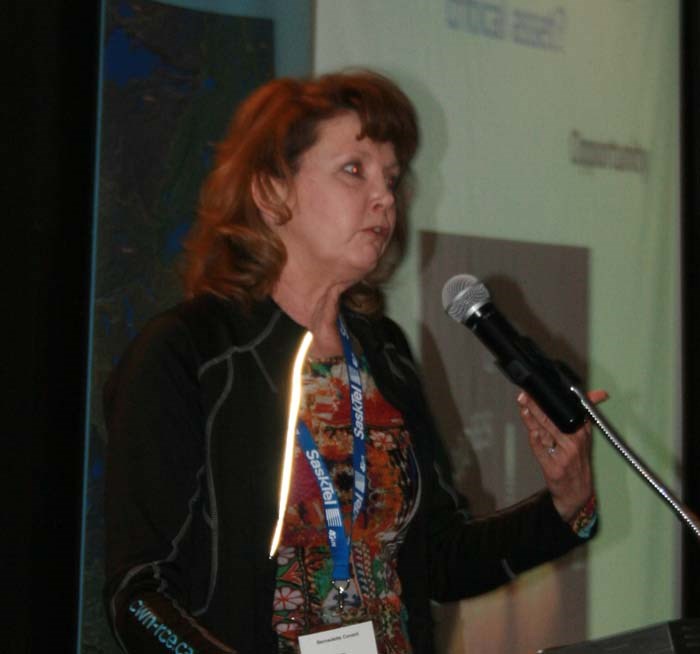Water is a resource which is a critical asset on many levels in Canada, and for that deserves a concerted effort to manage it properly.
That was the message those attending the Saskatchewan Association of Watersheds Conference in Yorkton last heard from one of the event’s keynote speakers Bernadette Conant CEO of the Canada Water Network (CWN).
“Water is a highly valuable asset,” she said, adding it goes beyond the obvious. “… There is an intrinsic value and a spiritual value.”
In terms of interest in the overall environment Conant said “water itself is a gateway issue” for people.
“It hits close to home for Canadians. They identify with it.”
That is where the CWN can play a role.
“Water matters to Canadians. It’s no wonder that it sits at the heart of many challenges facing the country. Water management issues that overlap jurisdictions are made even more difficult to solve because industry, government and NGOs are often disconnected from researchers and relevant knowledge that could significantly improve their ability to make progress,” notes the organization’s website.
Conant picked up on that theme suggesting it comes down to having a collaborative approach to get the most out of the accumulated ‘water knowledge’ that is out there.
Whether a suburban municipality, resource management group, agriculture or any number of groups with an interest in water, they can help with management and planning for the future of the resource,
“We see water as a central issue that connects them,” she said.
And once connected they can work toward a common goal to “identify risks” to the resource, and then develop strategies to best manage those risks.
That management will be critical moving forward because there are clearly economic advantages which come with reliable water sources, said Conant. She said water is very much a competitive advantage in many ways. These reasons include it being a basic necessity, it is a unique product that can’t go out of fashion, and there is no other product that competes with it.
While that may sound like a very business product approach to water, Conant said it works because water is something which is an advantage to many businesses.
And of course there is the need for water by people.
That all means management is critical, because where things go wrong — Walkerton, ON, North Battleford, SK, Flint, MI — the results can be dramatic. “So what is important to think about is how to manage the asset into the future,” said Conant.
That of course requires an adaptive plan since issues such as climate change make the future, and its impact on water something of an unknown.
“It took California (with its drought) to make us realize ‘yes it can happen here’,” said Conant.
The drought in California has a flip side of course, the impact of flooding, something experienced in Saskatchewan twice in the last decade.
Conant said it must be recognized a range of things can impact a water resource, at least on a local watershed level, including increased urbanization, wildfires, and agricultural run-off.
Moving forward water management must be prepared for issues that may not be expected.
It’s a case where “we need to develop systems to react faster,” so that when something negatively impacts a water source it can be dealt with effectively, and with a sense of the urgency such a critical resource demands, said Conant.
“We need to manage for resiliency going forward,” she said.




